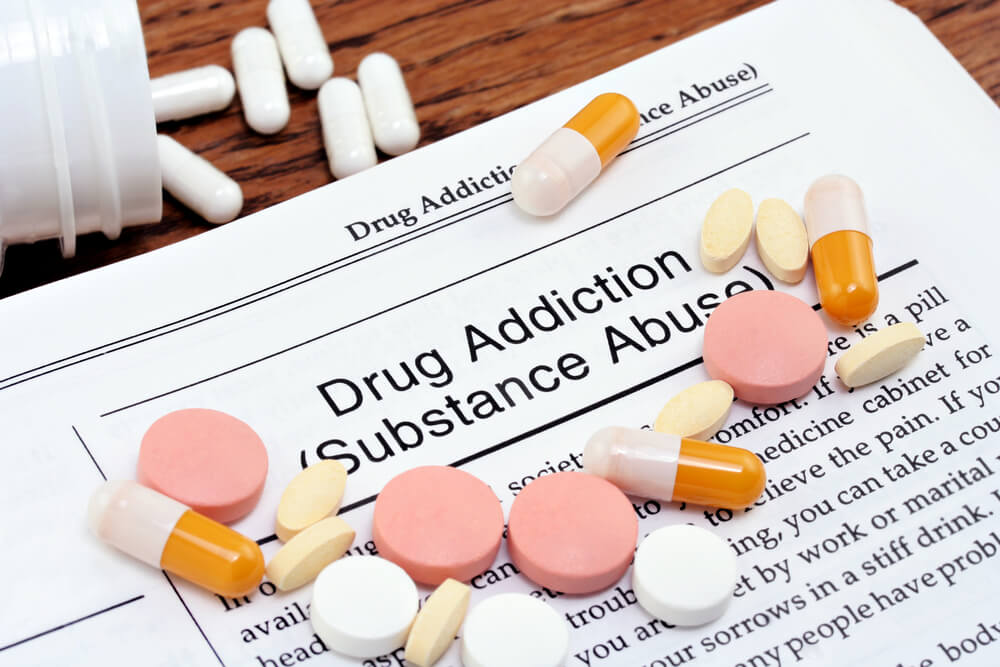Drug misuse has many possible underlying factors, and it’s important to find an approach that works for each person trying to regain control of their life. If you’re dealing with a prescription drug addiction, you may feel there’s no hope. The good news is that if you understand the science behind drug addiction, you can recover.
Prescription Opiates Are Habit-Forming
An opiate is a pharmacological substance derived from opium. In addition to illicit opiates such as heroin, doctors often prescribe opiate medications to treat patients with chronic pain and other health issues. Examples of prescription opiates include morphine, percocet, and fentanyl. Because they are so easily accessible, many Americans struggle with a prescription opiate addiction. When ingested, opiates increase the brain’s dopamine levels, resulting in an immediate sensation of euphoria, lowered heart rate, relaxed state, and drowsiness. Over time, the brain stops producing the same amount of natural dopamine, prompting the individual to ingest increasing amounts of the drug to achieve the same effect.

Understanding Prescription Drug Addiction
Everyone reacts to prescription medications differently. When taking medications for pain management, mental disorders or other medical purposes, your body might begin to require more medicine to achieve the same effect. You could develop a physical or mental dependence on the medication that results in cravings and withdrawal symptoms when you don’t take it.
Mental illness is often linked to prescription drug abuse because people may be trying to deal with stress or triggers by numbing their senses. If you’ve been using prescription medication in ways that you shouldn’t or find yourself attempting to get higher doses of your medications, you could be suffering from a substance use disorder.

Underlying Mental Disorders Contributing to Prescription Drug Addiction
Risk factors for drug abuse and addiction disorders can include:
- Requiring medication for pain management for an extended period
- Having family members who also suffer from drug dependence
- Abusing illegal drugs in the past before receiving a prescription for potentially addictive drugs
- Suffering from anxiety, post-traumatic stress disorder (PTSD), depression or bipolar depression
If you have a mental health disorder, it’s possible to develop a physical dependence on prescription medications as a coping mechanism. This is often referred to as a dual diagnosis, and it’s best to treat your addiction and underlying mental illness at the same time.
Types of Commonly Abused Prescription Drugs
There are three classes of medications that may increase the risk of severe substance use disorder.
Painkillers
Opioid painkillers are often a gateway for many people who suffer from drug use or alcohol abuse problems. Addictions to medications such as fentanyl, OxyContin or morphine often make people seek other substances if they’re unable to access the original medication that led them down the path of substance use.
Stimulants
Stimulants are prescription medications doctors prescribe to treat ADHD and similar mental health disorders. If you’re required to take stimulants for a long time, you could develop a physical or psychological dependence on them. Some people use stimulants for other purposes, such as weight loss, to get high or because the brain’s reward system calms them when they take their next dose.
Taking drugs meant for ADHD when you don’t suffer from the condition can have negative consequences, especially on your heart, brain and nervous system.
Depressants
These medications are used to help people relax, such as when they suffer from anxiety, PTSD or insomnia. Prescription medicines used to treat these conditions aren’t meant to be used long-term because it’s possible to develop dependence. They offer relief from mental health problems long enough for people to seek the therapy they need and address the underlying cause of their anxiety or restlessness.
Your mental health professional may monitor your progress with a depressant to make sure you aren’t tempted to misuse drugs as a coping mechanism.

Signs and Symptoms of Prescription Drug Addiction
If you or someone you know is exhibiting any of the following behaviors, it may be time to consider seeking help for a drug use problem:
- Craving higher doses of the medication
- Becoming irritable, restless or depressed when not using the drug
- Going to extreme measures to obtain more of the medication
- Suffering withdrawal symptoms when not using the medicine
Other ways to tell if someone is addicted to drugs is if they begin to retreat from activities they once enjoyed, stop seeking social contact with others or commit crimes to obtain prescription or illegal drugs.
Withdrawal Symptoms for People Attempting to Treat Substance Abuse
Extended drug use can result in serious withdrawal symptoms that require medication and mental health services for treatment. Withdrawal symptoms include:
- Jitters, shakes or convulsions
- Changes in sleep patterns
- Headaches and changes in vision
- Nausea or vomiting
- Irritability
Withdrawal symptoms happen when someone has stopped using alcohol or drugs and are one of the leading reasons people return to drug use.

Treatment Options for Prescription Drug Abuse
FDA-approved addiction medicine is an important component in any treatment plan because it helps people come off the substance gradually and with minimal adverse consequences. Other treatment options include inpatient drug rehab, intensive outpatient treatment, and working with a qualified mental health professional to develop healthier habits.
Our Approach to Prescription Drug Addiction Treatment
Left untreated, opiate dependency can cause numerous physical, emotional, and mental health problems and even lead to an overdose. At Recovery Life Center, our individualized opiate treatment programs equip you with the tools and skills needed to break free of your opiate addiction and gain back control of your life. Our team of caring professionals will walk at your side every step of the way to ensure your safety, comfort, and success. While here, you’ll be able to enjoy a peaceful environment surrounded by compassionate individuals who understand your struggles. Our center uses a holistic treatment approach uniquely tailored to your recovery needs.
We believe everyone deserves a plan based on their own needs. This is why we evaluate your family and environmental factors before recommending a path forward. Call us at (301) 686-3233 to speak with a drug counselor or fill out our form to learn more.
